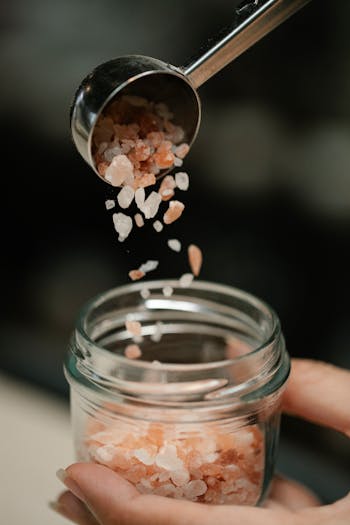Is Salt Poison for Your Health? Myth Debunked

Is Salt Poison for Your Health? Debunking the Myth
You’ve likely heard the warning: “Cut back on salt—it’s poison!” From health blogs to doctor’s offices, the idea that salt is harmful to the body is everywhere. But is salt really a dietary villain, or are we falling for a salt is poison for your health myth? In this post, we’ll trace the origins of this fear, debunk exaggerated claims with science, and explore salt poisoning symptoms human to clarify what’s dangerous and what’s not. By the end, you’ll know how to use salt wisely—because it’s not the enemy it’s made out to be.
The Origins of the “Salt Is Poison” Myth
Where Did This Fear Come From?
Salt has been a dietary cornerstone for millennia, used to preserve food in ancient Egypt and traded as currency in Rome. But by the 1970s, studies like the 1972 Framingham Heart Study linked high sodium intake to hypertension, sparking fear. Media amplified this, branding salt as a health hazard. In 2025, X posts still circulate claims like “is salt related to a poison?”—a dramatic leap from science. Globally, cultures like Japan, with high-salt diets, show mixed health outcomes, adding to the confusion.
Why the Myth Persists
The salt is poison for your health myth thrives because salt is easy to vilify—it’s in everything from chips to soups. With 80% of Americans exceeding daily sodium limits (per CDC), it’s no wonder warnings stick. But the blanket “poison” label ignores nuance, making us question: is salt poison or not?
Myth 1: All Salt Is Harmful to Your Body
The Role of Salt in Health
Far from poison, salt (sodium chloride) is essential. It regulates blood pressure, nerve function, and fluid balance, per the NIH. A 2023 Harvard study notes that 1.5–2.3 grams of sodium daily (about 1 teaspoon) supports these functions. Why do I feel better after eating salt? Low sodium can cause fatigue or cramps—signs you need more salt—especially for athletes or low-carb dieters.
When Salt Becomes a Problem
What organ is damaged by salt? Excessive sodium can strain the kidneys and heart, raising blood pressure. A 2021 Journal of Hypertension study linked chronic overconsumption (>5g sodium/day) to cardiovascular risks, but moderate intake is safe for most. The salt is harmful to the body myth overgeneralizes this risk.
Myth 2: Salt Poisoning Is Common

What Is Salt Poisoning?
Salt poisoning symptoms human include nausea, seizures, and confusion, caused by extreme sodium intake (e.g., >1 tablespoon in one sitting), per Mayo Clinic. Can a spoonful of salt harm you? Rarely—cases like salt poisoning in kids often involve accidental ingestion of massive amounts, like 4 tablespoons of salt. A 2024 CDC report notes such cases are rare, with <0.01% of ER visits tied to hypernatremia (high sodium levels).
Treatment and Prevention
Salt poisoning treatment human involves IV fluids in medical settings, but salt poisoning treatment at home is limited—call 911 for severe salt poisoning symptoms adults like seizures. Prevention? Stick to the FDA’s 2.3g sodium/day guideline.
Myth 3: No Salt Is the Healthiest Choice
Is It Better to Eat Without Salt?
Is it better to eat without salt? Not for most. A 2022 American Journal of Clinical Nutrition study found low-sodium diets (<1.5g/day) can raise heart risks in healthy adults. Himalayan salt or sea salt offers trace minerals, but all salts are chemically similar—sodium drives effects, not source.
Balancing Salt Intake
How much salt is too much? Over 5g sodium/day (2 teaspoons) risks health for most, per WHO. But cutting salt entirely ignores its benefits, like preventing hyponatremia (low sodium), especially in active people.
Myth 4: Salt Sabotages Weight Loss
Does Salt Hurt Your Goals?
Why is salt bad for you weight loss? It’s not—directly. Salt doesn’t cause fat gain, but excess can cause water retention, mimicking bloating, per a 2023 Obesity Reviews study. Reducing sodium gradually can ease this, but the salt is poison for your health myth exaggerates its role in obesity.
Smarter Weight Management
Focus on whole foods (e.g., vegetables, lean proteins) over processed ones, which hide sodium. Sea salt or Himalayan salt won’t magically slim you down—portion control does.
Practical Tips for Healthy Salt Use
How to Use Salt Wisely
- Measure intake: Aim for 1–1.5 teaspoons daily; use apps like MyFitnessPal to track sodium.
- Choose whole foods: Fresh produce has minimal sodium, unlike processed snacks (per USDA).
- Flavor smart: Use herbs or sea salt sparingly to enhance taste without overdoing it.
Avoiding Salt Myths
Ignore fads like “salt-free diets for detox.” Is salt safe to eat? Yes, in moderation—balance is key. For kids, limit processed foods to prevent salt poisoning in kids, per American Academy of Pediatrics.
Conclusion
The salt is poison for your health myth paints a vital nutrient as a villain, but science tells a different story. From supporting nerve function to rare salt poisoning symptoms human, salt’s effects depend on dose, not demonization. Stick to moderate intake, prioritize whole foods, and ditch the fear. Got a salt story or health myth to bust? Share below and join OmniMyths for more truth-driven wellness insights!
Frequently Asked Questions
Q: Is salt harmful to the body?
A: In excess, salt can raise blood pressure and strain kidneys, per CDC. But moderate intake (1–2.3g sodium/day) is essential for fluid balance and nerve health.
Q: Is salt poison or not?
A: Salt isn’t poison in normal amounts—1 teaspoon daily is safe for most, per NIH. Extreme overconsumption (e.g., 4 tablespoons) can cause rare salt poisoning symptoms human like seizures.
Q: What organ is damaged by salt?
A: Chronic high salt intake can stress the kidneys and heart, raising cardiovascular risks, per a 2021 Journal of Hypertension study. Moderation prevents harm for most people.
Q: Can a spoonful of salt harm you?
A: A single spoonful (1 tablespoon) is unlikely to cause salt poisoning symptoms adults unless consumed repeatedly, per Mayo Clinic. Symptoms like nausea require immediate medical attention.
Q: How much salt is needed to cause poisoning?
A: Over 1 tablespoon of salt at once (14g sodium) can trigger salt poisoning symptoms human, per FDA. This is rare and typically accidental, especially in kids.
Q: Why do I feel better after eating salt?
A: Salt replenishes sodium, easing fatigue or cramps if levels are low, per Harvard studies. This is common in athletes or those on low-carb diets.
Read about Silent Health Killer: Sugar
